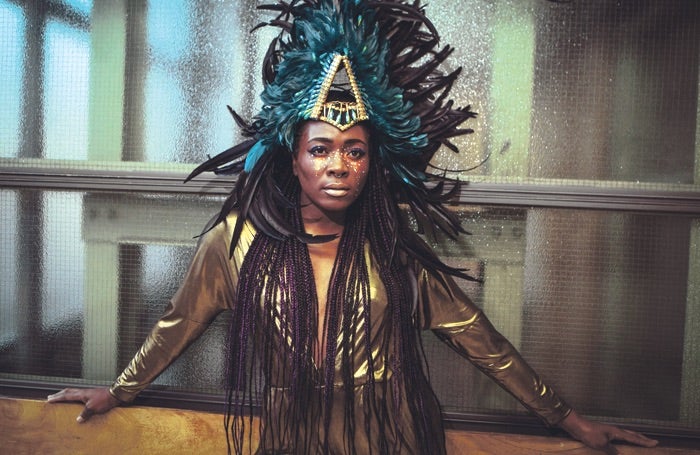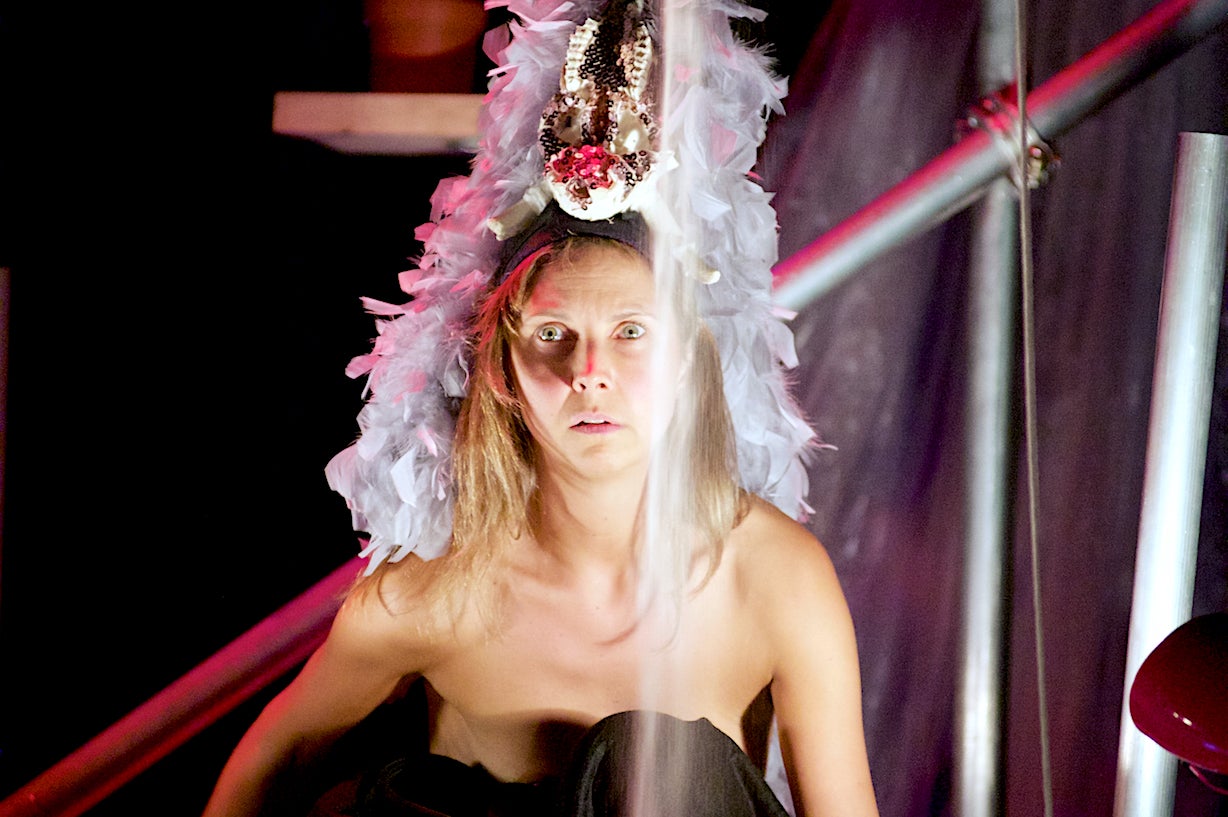Edinburgh Fringe Festival 2019: One-woman shows round-up
The limitations of the fringe set-up are real for a lot of performers doing shows in tiny shoebox venues

Your support helps us to tell the story
From reproductive rights to climate change to Big Tech, The Independent is on the ground when the story is developing. Whether it's investigating the financials of Elon Musk's pro-Trump PAC or producing our latest documentary, 'The A Word', which shines a light on the American women fighting for reproductive rights, we know how important it is to parse out the facts from the messaging.
At such a critical moment in US history, we need reporters on the ground. Your donation allows us to keep sending journalists to speak to both sides of the story.
The Independent is trusted by Americans across the entire political spectrum. And unlike many other quality news outlets, we choose not to lock Americans out of our reporting and analysis with paywalls. We believe quality journalism should be available to everyone, paid for by those who can afford it.
Your support makes all the difference.All of Me ★★★★★ / Orlando ★★☆☆☆ / Nightclubbing ★★★★☆
One-man – or indeed one-woman – shows are a staple of the fringe, the epitome of its stripped-back essence. But they can also smack of solipsism: endless navel-gazing but quirky, ultimately uplifting shows about mental health or identity politics.
Caroline Horton knows this. She had a hit with one of those shows, Mess, a few years ago. This time, she isn’t sugar-coating it: All of Me (Summerhall, Main Hall) is about her depression and suicidal thoughts. She opens by apologising – furiously, bending double and mashing her hands into her eye sockets – for all the things that are wrong with the show: she’s sorry that it isn’t more formally inventive, that it’s just a story; she’s sorry it’s a story about her; she’s sorry it’s so unrelentingly bleak, that there aren’t more jokes.
In fact, her opening is extremely funny. When she raises herself up and fixes the audience with her blazing gaze, she looks like a particularly wired meerkat. And this is a show that grabs you by the scruff of the neck and shakes you, first with laughter, then with dread, then finally with a sense of awe at both the darkness and the light within us all.
Horton’s story is recast as a myth, which she tells through wobbly songs and whispered narrative, through cleverly looped sound effects, giant headdresses and gorgeously lit mirror balls. Her sister is calling her (with a terrifying, growling lizard voice) back to the underworld – things aren’t right there, so Horton must quest to this dark, empty desert. She’s Horton’s own dark side, of course; the desert the void of depression.

But could there be something necessary in this darkness? The sister may drag her down, but she also demands more: more than the petty rules and conveyor-belt drudgery that often pointlessly passes for living (as illustrated – brilliantly – by one of those Jolly Penguin mechanised toys. Remember them?). The fearsome sister advocates for messiness, not neat stories; for being alone and facing death, rather than perpetually distracting ourselves; for recognising the mythic, the holy, within our darkest recesses, rather than chasing shallow notions of success.
All of Me is theatrically alive at every moment, even when conveying the deadening weight of depression. And yes, actually, it is ultimately uplifting – but by being raw, honest and elemental, rather than neat or cutesy. I loved it.
Horton’s show feels expansive, but the limitations of the fringe set-up are real for a lot of performers doing shows in tiny shoebox venues. Lucy Roslyn performs Orlando (Pleasance Courtyard, The Cellar) with little more than a stool and a pair of angle-poise lamps. No, she doesn’t attempt a full-scale adaptation of Virginia Woolf’s century hopping, gender-swapping romp; rather, her show is a meditation on how labels can limit us, with affectionate reference to the fluidity within Woolf’s work.
Roslyn tells us she found a copy of Orlando when she was eight years old. Much of her show is her jauntily summarising the plot and explaining how Orlando was written as a love letter from Woolf to (the married, bisexual) Vita Sackville-West. Then she describes her own, secretive love affair with a married woman. She never revealed it to friends because their reactions to her identifying as bisexual were so dispiriting.
There are some sparking parallels in the two strands, but structurally it feels like they could be intertwined with much more sophistication. Too long is spent on simply summarising Woolf’s (admittedly hard to summarise) plot. And although Roslyn chattily addresses the audience, almost like a stand-up, her manner at first feels awkward rather than intimate; it’s when she delves into the contemporary relationship story that it becomes more touching.
As a Woolf fan, I found Roslyn’s musings on love, identity and our capacity for change gently enjoyable. But it feels somewhat unformed, and like she could have gone much bigger – even when playing a very small room.
Rachael Young’s Nightclubbing (Summerhall, Old Lab) is a bit of a cheat here – she’s joined on stage by musicians and sound designers Mwen and Leisha Thomas, delivering insistent beats and grooves that help drive the show. Young’s show, gorgeously lit by Nao Nagai, conjures the thick atmosphere of a nightclub, and blends movement sequences (to music that evokes rather than recreates Grace Jones’ album) with spoken sections. These explore two different experiences of “nightclubbing”.
In 1981, Jones releases the album of that name; Young retells her journey from a “thin, shy, brown” young woman to international star on her own terms. In 2015, three women are barred entry from a club for being black. The two strands are not forced to speak directly to one another, and if at times I yearned for it to be further drawn together, there is real confidence and poise in the way Young trusts in her suspended juxtaposition.
The show starts – not entirely unlike All of Me – with Young delivering an uncomfortable litany of things black women are expected to apologise for: for laughing too loud, for Black Panther and Get Out, for making you feel, well, uncomfortable. They’re delivered while frantically hula-hooping (something Jones does in her shows) in heavy, black platform shoes; later, Young loops scores of black rubber hoops around her neck and head. These could represent the extra burdens placed on black women, the hoops you have to go through – but such imagery also feels celebratory, stylish, and resilient, in the Jones image.
Young, who performs with a mighty magnetism of her own, muses on how black women’s skin grants them both extra visibility and invisibility in our society. But Nightclubbing is a powerful, hopeful cry for black women to burn bright; melanin, after all, “is a light catcher”. Young starts the show crawling out of a crinkled, giant black skirt, like a weird mound of earth. By the end, she turns it inside out, and inside it is golden – a giant, blazing sun.
Join our commenting forum
Join thought-provoking conversations, follow other Independent readers and see their replies
Comments